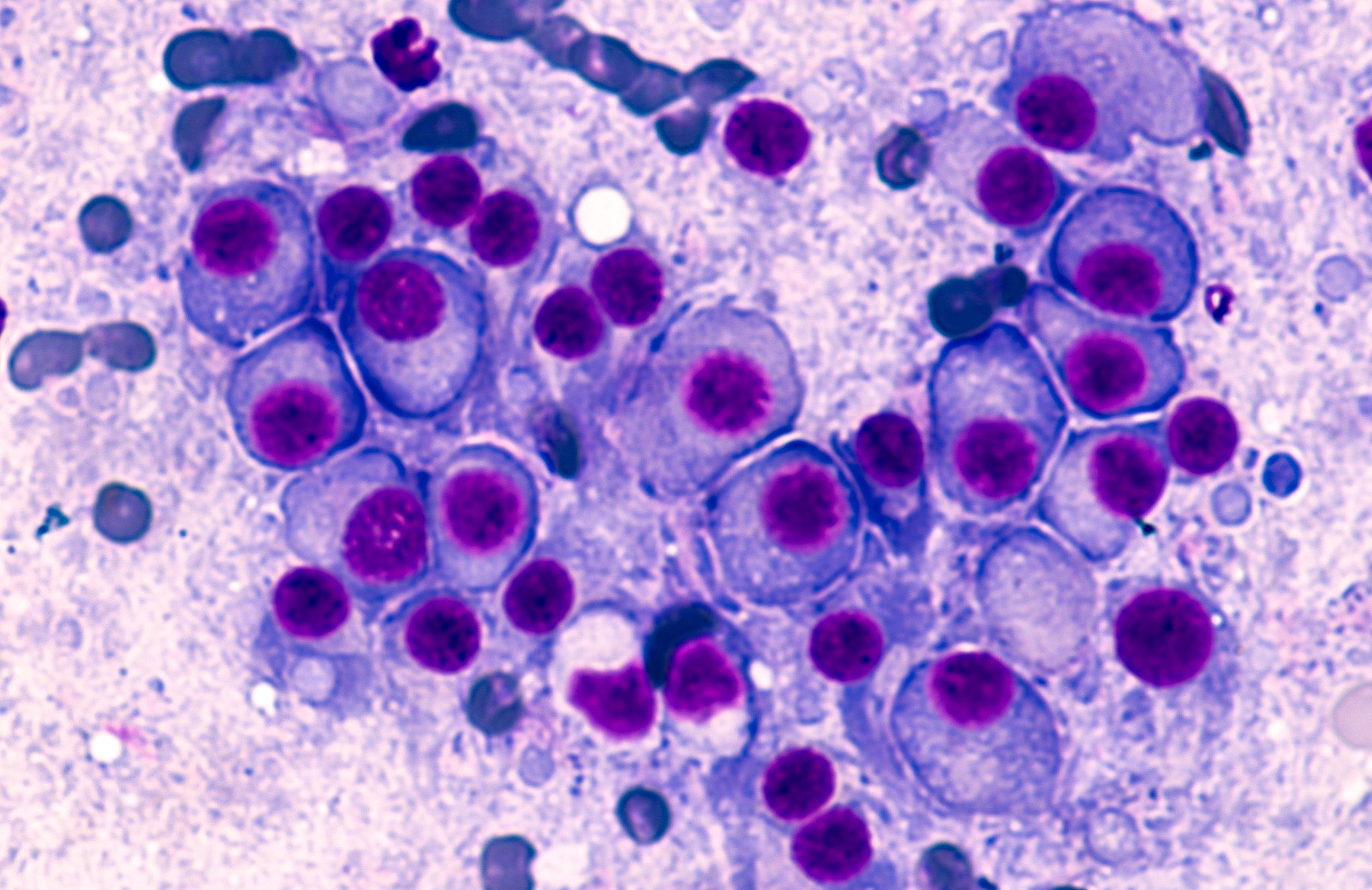FDA Approves Isatuximab Plus VRd in Transplant-Ineligible Multiple Myeloma
The approval is supported by data from the phase 3 IMROZ study which demonstrated superior progression-free survival with isatuximab plus VRd vs VRd alone in patients with newly diagnosed, transplant-ineligible multiple myeloma.
Multiple Myeloma: © David A Litman - stock.adobe.com

- The FDA has approved isatuximab (Sarclisa) plus bortezomib (Velcade), lenalidomide (Revlimid), and dexamethasone (VRd) for the treatment of patients with transplant-ineligible, newly diagnosed multiple myeloma.
- This is the first approved anti-CD38 therapy in combination with standard-of-care VRd in this patient population.
- This marks the third indication for isatuximab in multiple myeloma.
Isatuximab plus VRd (isa-VRd) is now an FDA-approved combination for the treatment of patients with transplant-ineligible, newly diagnosed multiple myeloma, making it the first anti-CD38 therapy available in this patient population plus VRd.1
In May 2024, the supplemental biologics license application of isatuximab for this indication was granted priority review, identifying the treatment as a significant improvement compared with those currently available.2
The approval is supported by the phase 3 IMROZ study (NCT03319667).3,4 At a median follow-up of 59.7 months, patients treated with isa-VRd (n = 265) followed by isatuximab plus Rd experienced a median progression-free survival(PFS) that was not reached (NR) vs 54.34 months (95% CI, 45.207-NR) in patients treated with VRd alone (HR, 0.596; 98.5% CI, 0.406-0.876; log-rank P =.0005), meeting the primary end point of the study. Notably, the 60-month PFS rate was 63.2% in the investigational group vs 45.2% in the control arm. This PFS benefit was seen across most subgroups, including some difficult-to-treat populations with negative prognostic factors.4
"IMROZ is the first global, phase 3 study of an anti-CD38 monoclonal antibody in combination with VRd in patients with transplant-ineligible myeloma. In this presentation, we [showed] that the IMROZ regimen led to a statistically significant improvement in PFS, deep response rates with statistically significant improvements in complete response [CR] and minimal residual disease [MRD]-negative CR, sustained in MRD negativity, and a safety profile consistent with that of each agent,” lead study author Thierry Facon, MD, professor of hematology in the Department of Hematology at Lille University Hospital, France, stated in a presentation of the data.
Although overall survival (OS) data were immature at data cutoff, an interim OS analysis showed a positive trend for isa-VRd (HR, 0.776; 95% CI, 0.407-1.48). The 5-year OS rates were 72.3% and 66.3% for patients treated with isa-VRd vs VRd, respectively. Further, the overall response rate was 91.3% for isa-VRd and 92.3% for VRd with a CR or better rate of 74.7% for isa-VRd and 64.1% for VRd (P =.01). The very good partial response or better rate was 89.1% and 82.9% for isa-VRd and VRd, respectively (OR, 1.729; 95% CI, 0.994-3.008).3
REFERENCES:
1. FDA approves isatuximab-irfc with bortezomib, lenalidomide, and dexamethasone for newly diagnosed multiple myeloma. News release. FDA. September 20, 2024. Accessed September 20, 2024. https://tinyurl.com/pph8yf6c
2. Sarclisa accepted for FDA priority review for the treatment of transplant-ineligible newly diagnosed multiple myeloma. News release. Sanofi. May 27, 2024. Accessed August 9, 2024. https://tinyurl.com/53hhdwwj
3. Facon T, Dimopoulos MA, Leleu XP, et al. Phase 3 study results of isatuximab, bortezomib, lenalidomide, and dexamethasone (Isa-VRd) versus VRd for transplant-ineligible patients with newly diagnosed multiple myeloma (IMROZ). J Clin Oncol. 2024;42(suppl 16):7500. doi:10.1200/JCO.2024.42.16_suppl.7500.
4. Facon T, Dimopoulos M-A, Leleu XP, et al. Isatuximab, bortezomib, lenalidomide, and dexamethasone for multiple myeloma. N Engl J Med. Published online June 3, 2024. doi:10.1056/NEJMoa2400712
Gasparetto Explains Rationale for Quadruplet Front Line in Transplant-Ineligible Myeloma
February 22nd 2025In a Community Case Forum in partnership with the North Carolina Oncology Association, Cristina Gasparetto, MD, discussed the CEPHEUS, IMROZ, and BENEFIT trials of treatment for transplant-ineligible newly diagnosed multiple myeloma.
Read More